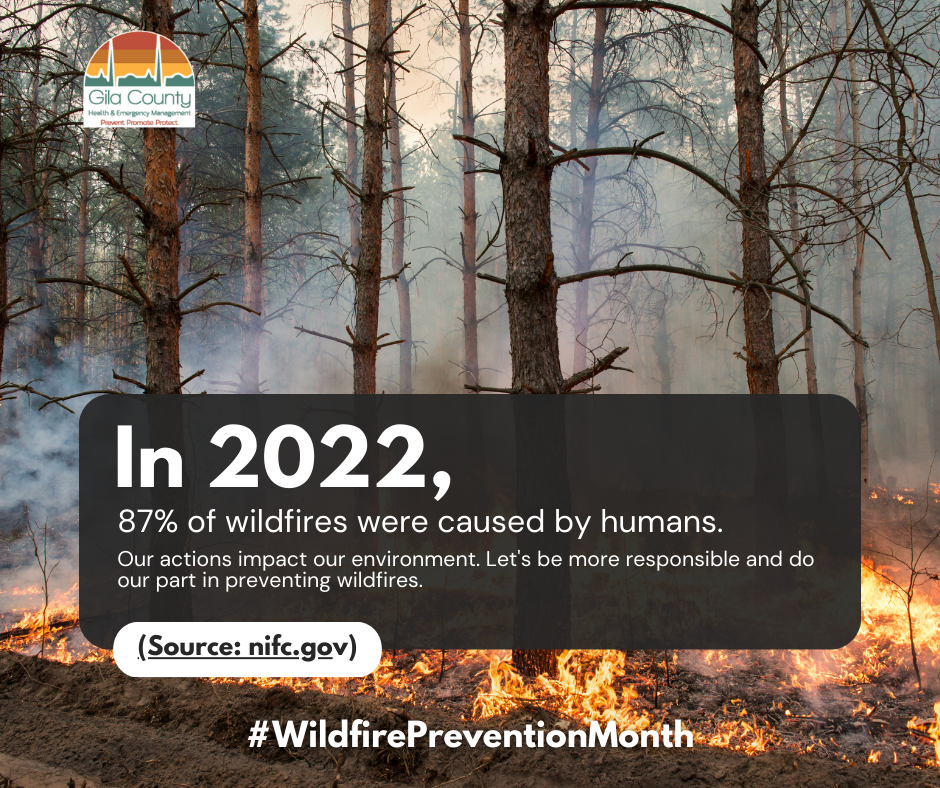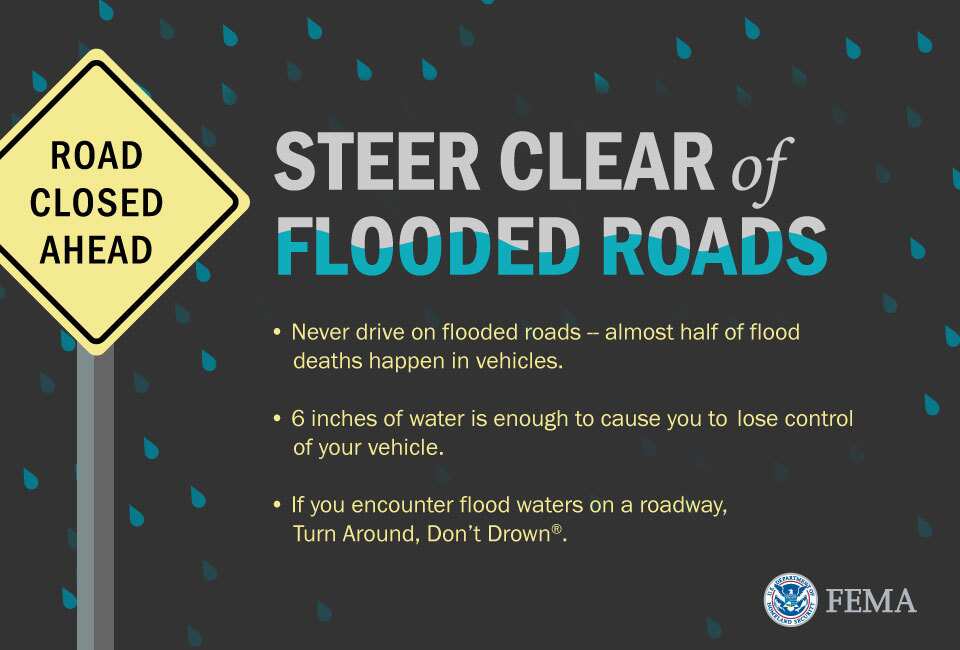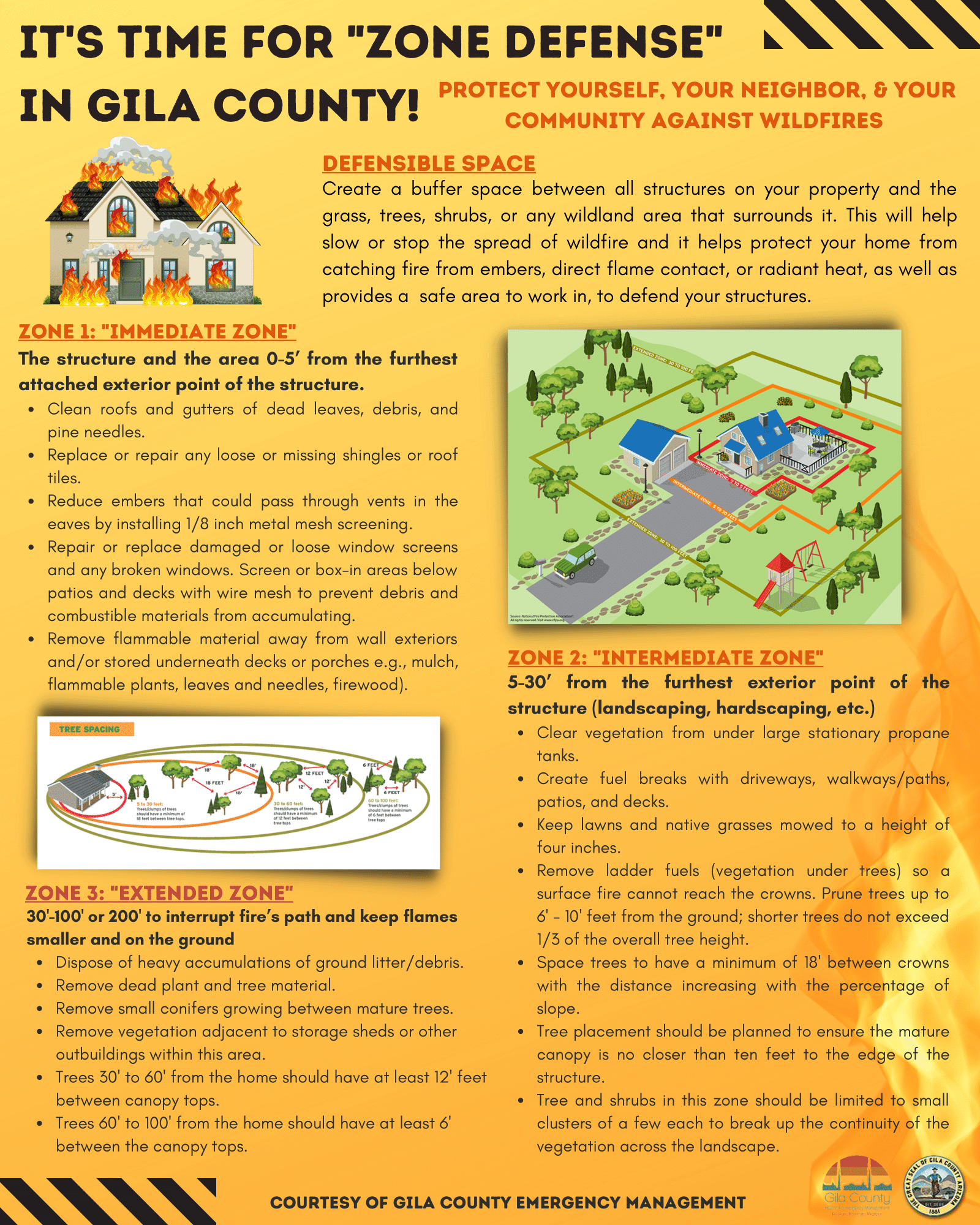 Before Extreme Heat Strikes
Before Extreme Heat Strikes
Extreme Heat

Coping with hot weather conditions is a concern of every Arizonan. In Gila County, summer months average in the 90°s, and some days can exceed 100°! Such extreme heat can cause dehydration, the effects of which can be compounded by the higher elevation. Indeed, extreme heat is the culprit behind more than 2,000 ER visits across the state every year.
The dangers of extreme heat rise for small children, the elderly, functional needs populations, or others who may need assistance or care. Pets and livestock, too, require special attention during these times.
 Before Extreme Heat Strikes
Before Extreme Heat Strikes
-
Schedule a professional to confirm your home’s cooling system is working properly and that all ducts are clear and properly insulated.
-
Check weather stripping around doors and windows to keep cool air inside.
-
Consider using temporary window reflectors, such as DIY aluminum-foil-covered cardboard, to reflect heat back outside.
-
Cover windows that get sun with drapes, shades, or sunscreens.
-
Make arrangements for family, friends, and neighbors who are at higher risk, do not have air conditioning, and/or spend the majority of their time alone. Prepare for needs of your pets and animals.
 During Extreme Heat
During Extreme Heat
-
Stay abreast of heat levels by using NOAA Weather Radio, Heat Advisory Alerts, or smartphone apps.
-
Stay indoors as much as possible and limit exposure to the sun.
-
Never leave children, pets, or seniors alone in closed vehicles.
-
Remain in your secure position until the shaking stops. Do not try to run outside or use stairways or elevators during a quake.
-
Drink plenty of water, even if you do not feel thirsty. Avoid drinks with caffeine or foods with sodium. (Persons who have epilepsy or heart, kidney, or liver disease and are on fluid-restricted diets or have a problem with fluid retention should consult a doctor before increasing liquid intake.)
-
Wear loose-fitting, lightweight, and light-colored clothes that cover as much skin as possible. Avoid dark colors because they absorb the sun’s rays.
-
If anyone around you exhibits signs of heat exhaustion or heat stroke (heavy sweating, weakness, vomiting, fainting, fast pulse, etc.), call 911 immediately.
-
Avoid strenuous outdoor work or activity. If you cannot avoid, work with a partner and wear sunscreen and a hat. Do not stay out in the heat alone.
-
Check on your animals and others who need your care frequently. If your home loses power, proceed to a designated shelter or Salvation Army hydrating station.
Cooling Stations in Gila County




